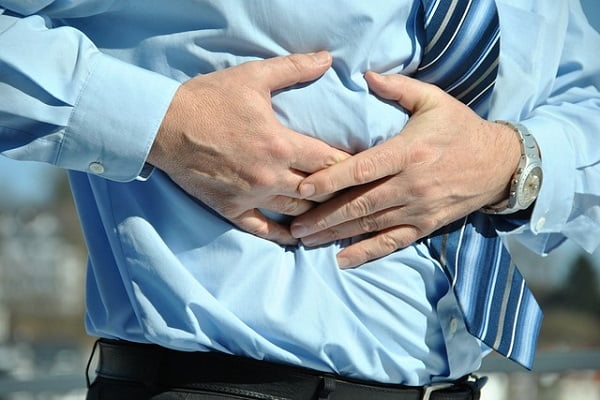Appendicitis Pain: What Does Appendix Pain Feel Like?
- Updated on: Jul 10, 2024
- 4 min Read
- Published on Oct 3, 2019


Appendix and Appendicitis
Appendix is 3 ½ inch long tube which extends from large intestine. No significant function of appendix is known, but some doctors believe that it contains a special tissue, which produces antibiotics and helps in fighting infection. As its function is unknown, so you can easily survive without an appendix and no health difficulties may occur as such.
Inflammation of the appendix leads to a condition known as appendicitis. Inflammation of appendix occurs due an infection or blockage of stool or foreign body or due to cancer. It is a medical emergency which requires an urgent removal of appendix through a surgery. If not treated quickly, then it can burst or perforate and as a result, it will spread the infection in the abdominal cavity. This infection will result in acute inflammation of peritoneum (abdominal cavity lining), which is a fatal condition if not treated quickly with the help of antibiotics.
Appendicitis Pain: How do you feel when you have appendicitis pain?
Appendix pain is one of the major symptoms of appendicitis. Appendicitis pain starts near the naval or upper abdomen, which may not be permanent. This is the first sign of onset of appendicitis that can occur in an individual, but it is only observed in less than half of the appendicitis patients.
Then within few hours, the appendix pain travels to the lower right-hand side of the abdomen, where the appendix is located. A severe pain is observed in this area which remains constant. This occurs due to swelling and inflammation of the appendix.
See also: Appendicitis Symptoms, Causes, Diagnosis, Treatments, Surgery, and Complications
See also: Appendicitis in Kids: Causes, Symptoms, Diagnosis, And Treatment
What does appendix pain feel like?
An appendicitis patient may feel a dull, cramping or aching type of pain throughout the abdomen during the onset of symptoms. With time, the pain becomes quite severe and remains constant as a sharp ache on right-hand side. This makes the patient quite uncomfortable.
Which side does appendix pain occurs? Where does appendix pain starts?
With the onset of symptoms, the appendicitis pain is located in the center of abdomen, particularly near the navel (bellybutton) and lower and upper abdomen region. Gradually, with time the pain travels to the lower right-hand side of the abdomen, which is quite severe and remains stable.
What are the symptoms of appendix pain?
The major symptom of appendicitis involves occurrence of extreme pain in the lower right side of abdomen. Other symptoms commonly experienced along with appendicitis pain are as follows:
- Loss of appetite
- Nausea or vomiting which begins after onset of abdominal pain
- Abdominal swelling
- Fever ranging about 100-101.F
- Constipation or diarrhea with gas
- Inability to pass gas
- Painful urination
- Severe cramps
Features of appendicitis pain
Appendix pain is the one of the significant symptoms that an appendix patient experiences. It occurs on the lower right-hand side of the abdomen. The abdominal pain has the following characteristics:
- Appendix pain occurs suddenly and may result in waking you up at night
- It occurs before others symptoms may appear
- Appendix pain begins near the belly button and moves to lower abdomen region
- The pain felt is quite new and never experienced by the patient before
- The appendicitis pain becomes quite extreme in a few hours
- It becomes quite worse while walking, taking deep breath, coughing or sneezing
Back pain in appendicitis: Is back pain during appendicitis common?
Most people experience appendicitis pain on the right side of abdomen only, as the appendix is located in that region. In some people, the appendix may be present behind the colon, due to which they may experience lower back pain or pelvic pain during appendicitis. Therefore, back pain is quite rare during appendicitis.
What happens when an appendix bursts?
If the inflamed appendix is not treated on urgent basis, then it may lead to an appendix burst. It involves spreading the infection in the inner lining of abdomen, known as peritoneum. Appendix burst is extremely painful and cause severe inflammation. Such a condition is known as peritonitis. It is a life-threatening condition and requires immediate medical attention.
How long does it take for an appendix to rupture?
An inflamed appendix has a potential risk to get ruptured after 48 hours of onset of appendix pain and other such symptoms. However, it rarely gets ruptured within the first 24 hours of onset of symptoms. As soon as you experience any symptoms of appendicitis, you should consult a doctor urgently for its treatment.
See also: How Long Does It Take To Recover From Appendix Surgery?
How do you know if your appendix got busted?
When the appendix ruptures due to severe inflammation, then the infection spreads in the abdominal cavity and body temperature may rise above 101.F. Increase in heart rate may also indicate presence of ruptured appendix in the abdominal region.
When do you require medical assistance for appendicitis pain?
If you experience any middle/lower/right side abdominal pain along with fever and vomiting, then you should consult a doctor. If your symptoms continue for more than 4 hours then you should immediately visit a doctor’s clinic or a hospital’s emergency department.
Treatment of appendix pain
Appendicitis pain cannot be treated at home. Any home remedies can exaggerate the situation. Never try any home remedies for appendix treatment. You should immediately visit a doctor or move to emergency department of a hospital.
The doctor will surgically remove the appendix by either appendectomy or laparoscopy. In some cases, he or she may recommend certain antibiotics to reduce the infection in the appendix and then remove it through surgery.
What should be avoided during an appendicitis pain?
The following practices or home remedies should be avoided as they can lead delay the diagnosis of appendicitis symptoms. This delay in diagnosis may lead to rupture of appendix and thereby exaggerate the condition. In certain conditions, these steps could even rupture the appendix directly leading to peritonitis.
These preventive measures include:
- You should not eat or drink anything, as it can delay or lead to complications during appendix surgery. If you feel thirty, you can wash your mouth with water.
- You should not consume any over-the-counter medication such as a laxative, antibiotic, antacid and pain relief medication.
- Never place a heating pad to control appendix pain











